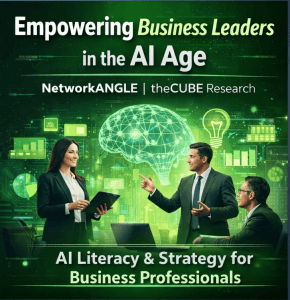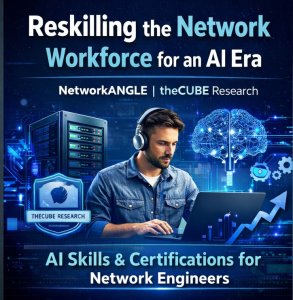In a recent “Ask Me Anything” session, IBM Chairman and CEO Arvind Krishna offered candid insights into the company’s strategic direction. The discussion delved into IBM’s focus on artificial intelligence (AI), automation, consulting, partnerships, and emerging technologies like quantum computing. Krishna’s remarks not only highlighted customer proof points with AI, but also IBM’s internal use of machine intelligence and automation—what the company calls “client zero”—and underscored a commitment to innovation. In our view Krishna has positioned IBM for renewed leadership in the technology industry.
Consulting Margins Poised for Growth Through AI Integration
IBM anticipates its consulting margins will rise from the low teens to the mid-teens over time, driven by the integration of AI and automation into its services. Krishna emphasized that routine tasks, such as document summarization, can be effectively handled by AI, reducing the need for human intervention. However, he acknowledged that roles requiring specific expertise remain challenging to fully automate.
This shift signals significant upside potential for IBM’s financial posture. Historically, consulting services have struggled with negative economies of scale at volume, while software solutions offer more attractive economics. The key issue lies in how integrating software into IBM’s consulting business and “platformizing” consulting services will affect overall revenue growth and margins.
Internal AI Implementation Yields Significant Efficiencies
IBM has realized $1.6 billion in cost efficiencies to date, with approximately half attributed to AI deployment. The company aims to achieve $3 billion in efficiencies by 2025. Notably, around 75% of all service queries to IBM are now addressed through AI-powered self-service platforms—a culmination of a five-year journey that has enhanced both customer and employee experiences.
AI is also streamlining back-office functions, including procurement, accounts payable, invoicing, and human resources. Routine HR inquiries, such as employment verification letters, are now automated, reducing manual workloads. By positioning itself as “client zero,” IBM demonstrates success with AI internally, which can bolster customer confidence in its AI solutions.
Reevaluating BPO and Managed Services with AI
Krishna highlighted the distinction between Business Process Outsourcing (BPO) and managed services. While BPO often relies on location-based cost arbitrage, AI presents opportunities to automate up to 60% of tasks currently handled by humans, potentially reaching 90% in the future. Standard applications like SAP are ripe for automation, though bespoke applications present more complex challenges for AI integration.
Many of IBM’s consulting competitors are pursuing managed services to create renewable revenue streams. It’s somewhat unclear how critical this will be to IBM’s approximately $20 billion consulting business. However, it’s evident that IBM intends to drive AI throughout its BPO and managed services operations.
Strategic Partnerships and Innovative Go-to-Market Approaches
Under Krishna’s leadership, IBM has become increasingly partner-focused. Rather than competing directly with faster-growing rivals, IBM identifies areas where it can add value to partners and facilitate mutual growth. This collaborative strategy has led to significant success, with four out of seven key partnerships generating over $1 billion in revenue.
IBM is also shifting from a transactional to an experiential go-to-market approach. The company emphasizes real-world engagement through initiatives like 4,000 “garage” engagements designed to foster innovation with top clients. This hands-on strategy enhances client relationships and showcases IBM’s capabilities in delivering tailored solutions.
Quantum Computing: A Transformative Yet Distant Horizon
While acknowledging the transformative potential of quantum computing, Krishna believes practical applications are still 24 to 36 months away. Drawing parallels to how NVIDIA’s GPUs evolved into AI accelerators, he suggests quantum computing may follow an unpredictable trajectory but will ultimately become a significant trend.
High-Growth Products and Acquisitions Fueling Momentum
Krishna highlighted several areas of the portfolio exhibiting strong market momentum:
- OpenShift and Ansible: OpenShift has expanded from $150 million to “well over” $1 billion and is approaching $2 billion in revenue. Ansible shows a similar growth percentage pattern.
- Watsonx Traction: IBM’s AI platform, Watsonx, is experiencing robust adoption, with revenues growing from tens of millions to hundreds of millions.
- Strategic Acquisitions: Recent acquisitions like Apptio and Turbonomic have significantly bolstered IBM’s offerings in automation and AI operations (AIOps).
These developments underscore IBM’s focus on areas with substantial growth potential.
Navigating Mergers and Acquisitions Amid Regulatory Hurdles
The current regulatory environment presents challenges for large-scale mergers and acquisitions, influencing IBM’s strategic decisions. Krishna noted that acquisitions in areas like mainframe technology are unlikely due to regulatory constraints. Instead, IBM is concentrating on smaller, strategic acquisitions in automation, AIOps, observability, resource management, FinOps, and deployment. The goal is to develop closed-loop systems rather than fragmented solutions.
A Pragmatic Stance on Autonomous AI and Ethical Considerations
Drawing from past experiences, IBM remains cautious about fully autonomous AI systems. Krishna emphasized focusing on low-risk applications where AI can operate autonomously, such as handling customer service inquiries. He does not foresee artificial general intelligence (AGI) emerging with current technology, highlighting the necessity for AI systems to incorporate hard knowledge alongside probabilistic models.
Krishna expressed skepticism about concerns that AI will “rule the world” anytime soon, suggesting that current AI technologies are not on a clear path toward AGI.
Commitment to Sustainability and AI Hardware Efficiency
IBM recognizes that current GPUs are not optimized for AI workloads from a sustainability perspective. Krishna indicated an industry need for semiconductors designed specifically for AI to significantly reduce power consumption. By employing smaller, purpose-built models for specific tasks, companies can achieve substantial energy savings without relying on excessively large models.
IBM is actively collaborating with organizations like NASA on climate change data, reinforcing the company’s commitment to sustainability. Krishna hinted that incumbent AI chip players may not be motivated to drive significant improvements in energy efficiency, implying that IBM is considering disruptive innovations in this area.
Future Technologies and the Integration of LLMs with Quantum Computing
Krishna touched on the potential of integrating large language models (LLMs) with quantum computing, suggesting this could unlock new possibilities in processing and problem-solving. He emphasized that clients are generally indifferent to the underlying hardware, focusing instead on efficient AI solutions that meet their needs without overemphasizing the technology stack.
With light at the end of the tunnel for quantum computing, Krishna believes it’s time to start taking the technology seriously. Hybrid architectures blending classical and quantum techniques are expected to emerge, serving as a bridge to future advancements.
Reaffirming Commitment to Innovation and Client Growth
Addressing perceptions about IBM’s innovation, Krishna highlighted that the company is acquiring new clients at a rate of a few thousand per year—a significant increase compared to five years ago. He noted that the current view of IBM is entirely different from half a decade ago, with advances in systems and migrations allowing clients to clearly see IBM’s accomplishments.
Unlike some competitors, IBM does not “hold people hostage” with proprietary solutions. The company focuses on adding value and maintaining strong, collaborative relationships with clients. Krishna emphasized the necessity of ongoing innovation to prepare for the future, expressing excitement about IBM’s current portfolio and optimism for what lies ahead.
Conclusion
Arvind Krishna’s insights reveal IBM’s strategic emphasis on integrating AI and automation across its operations and services to drive efficiency and growth. This strategy drives key proof points to build confidence with customers. The company’s collaborative approach to partnerships, cautious yet progressive stance on emerging technologies like quantum computing, and commitment to sustainability position IBM for renewed leadership in the technology industry.
With its stock at an all-time high, IBM appears poised for continued growth. By focusing on practical applications of AI, expanding its client base, and continually innovating, IBM aims to deliver significant value to its clients while navigating the complexities of today’s technological landscape. Krishna’s enthusiasm for the company’s portfolio and future prospects underscores IBM’s dedication to remaining at the forefront of technological advancement.



